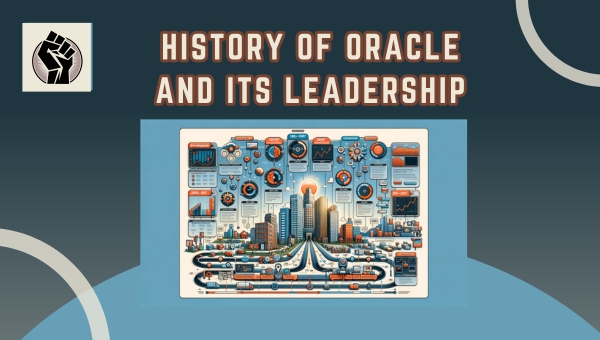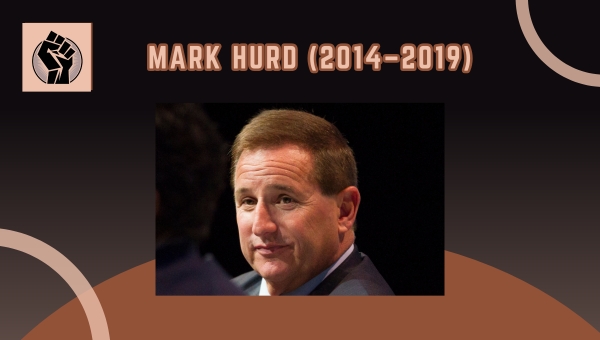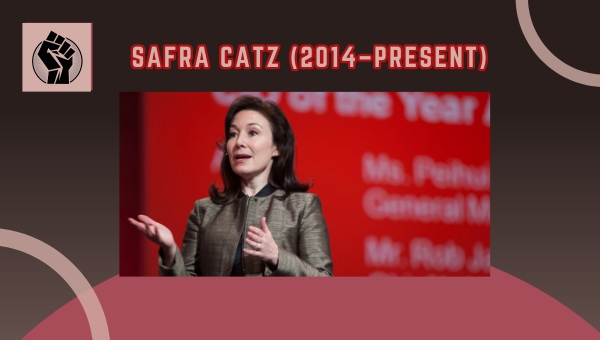A company started by three ambitious individuals in 1977 grows into one of the most influential tech corporations globally. The journey of Oracle Corporation is closely tied to its visionary leaders who have steered its growth and innovation. From pioneering database technologies to leading the cloud computing revolution, the CEO of Oracle has played a pivotal role in shaping its success.
This article takes you through Oracle’s leadership history, key contributions, and future direction, offering insights into the minds behind this tech powerhouse. Dive in to explore how leadership has defined Oracle’s global dominance and what lies ahead for this trailblazing company.
History Of Oracle And Its Leadership
Oracle Corporation, founded in 1977 by Larry Ellison, Bob Miner, and Ed Oates, began as a Software Development laboratory. The company initially focused on creating relational database management systems, launching the groundbreaking Oracle Database in 1979. This innovation transformed how businesses managed data and positioned Oracle as a leader in the tech industry.

Over the years, Oracle pursued strategic acquisitions and continuous innovation, expanding its product offerings to include cloud computing, enterprise software, and hardware systems. Larry Ellison served as CEO until 2014, playing a crucial role in defining the company’s vision and growth. After his tenure, the leadership transitioned to Safra Catz and Mark Hurd as co-CEOs, emphasizing operational efficiency and cloud technology.
Today, Oracle remains a global technology powerhouse, driven by a commitment to adapt and lead in an ever-changing market.
Notable CEOs Of Oracle
The role of Oracle’s CEOs has been pivotal in shaping the company’s growth and direction. Below is a detailed breakdown of the most influential leaders who have been at the helm of Oracle Corporation.
Larry Ellison (1977–2014)
As one of Oracle’s co-founders, Larry Ellison served as the CEO for nearly four decades. He was instrumental in transforming Oracle from a small startup into one of the leading global enterprise software companies. Under his leadership, Oracle introduced groundbreaking database technologies that revolutionized how businesses manage and store data. Ellison was known for his aggressive growth strategies, including numerous acquisitions that expanded Oracle’s portfolio.

Key Achievement: Establishing Oracle as a pioneer in relational database management systems and scaling the company to international prominence.
Mark Hurd (2014–2019)

Mark Hurd joined Oracle as co-CEO alongside Safra Catz. Before his time at Oracle, he held leadership roles at HP and NCR Corporation. Hurd was recognized for his ability to enhance operational efficiency and streamline processes. At Oracle, he played a significant role in advancing the company’s cloud strategy, contributing to the development of Oracle’s cloud infrastructure and software-as-a-service offerings. Hurd’s tenure was also marked by strategic acquisitions that strengthened Oracle’s position in the market.
Key Achievement: Spearheading advancements in Oracle’s cloud offerings and enhancing operational efficiency.
Safra Catz (2014–Present)
Safra Catz, who initially served as Oracle’s Chief Financial Officer, became Co-CEO in 2014 alongside Mark Hurd. Following Hurd’s passing in 2019, she took on the sole CEO role. Catz is known for her pragmatic and results-driven approach. She has been a key figure in transitioning Oracle toward cloud computing, focusing on operational efficiency and shareholder value. Her leadership has been marked by an emphasis on innovation in cloud technologies and maintaining Oracle’s competitive edge.

Key Achievement: Leading Oracle’s transition into the cloud computing era while driving strong financial performance.
Also Read: CEO of Home Depot: Leadership That Transformed Retail
Key Contributions Of Oracle CEOs
Oracle’s CEOs have played instrumental roles in shaping the company’s growth and evolution. Their leadership has steered Oracle through transformative decisions, global expansions, and advancements in technology. Let’s explore their remarkable contributions.
Strategic Decisions And Innovations
Oracle’s leaders have consistently made pivotal decisions that redefined the company’s direction and offerings. Here are some highlights:
- Development of Oracle Database: Larry Ellison spearheaded the creation of Oracle’s flagship database technology, setting the foundation for its success.
- Focus on Acquisitions: Leaders like Larry Ellison and Mark Hurd executed strategic acquisitions, including PeopleSoft, Sun Microsystems, and NetSuite, to bolster Oracle’s product portfolio.
- Cloud Transition: Safra Catz prioritized investments in cloud technology, enabling Oracle to remain competitive in a rapidly modernizing market.
- Emphasis on AI Integration: Recent leadership focused on integrating AI into Oracle’s solutions, enhancing their functionality and appeal.
Expanding Oracle’s Global Presence
Oracle’s CEOs have worked to establish a robust global footprint, ensuring the company’s presence in diverse markets. This global strategy has been crucial to its success.
- Operations in Over 175 Countries: Under various CEOs, Oracle has expanded its operations, making its products and services globally accessible.
- Regional Data Centers: To cater to international clients, Oracle has established multiple regional data centers, offering localized solutions.
- Partnerships Across Borders: Leaders have fostered partnerships with governments and enterprises worldwide to drive the adoption of Oracle’s technologies.
- Customized Solutions for Global Markets: Oracle has tailored its offerings to meet the specific needs of different regions, enhancing its appeal and usability.
Shaping The Cloud Computing Landscape
Cloud computing has been a focal point for Oracle, with its leaders driving innovation and growth in this domain.
Here’s how they’ve contributed:
- Introduction of Oracle Cloud Infrastructure (OCI): A strategic move to compete with industry leaders like AWS and Microsoft Azure.
- Investments in SaaS and PaaS: Oracle’s CEOs have prioritized Software-as-a-Service (SaaS) and Platform-as-a-Service (PaaS) solutions, aligning with market trends.
- Autonomous Database Launch: Larry Ellison introduced the world’s first autonomous database, which revolutionized data management in the cloud.
- Cloud Applications Expansion: Safra Catz has focused on expanding Oracle’s cloud applications, making them more versatile and scalable for businesses.
Leadership Style And Impact
The leadership at Oracle has left a strong imprint on the company’s culture and operational structure. From fostering innovation to navigating complex challenges, Oracle’s leaders have consistently demonstrated adaptability and forward-thinking approaches.

Below, we delve into the cultural and organizational influences, as well as the hurdles faced and how they were tackled.
Cultural And Organizational Influence
Oracle’s leadership has played a significant role in shaping the company’s internal culture and overall organizational framework.
- Encouraging Innovation: Leaders have fostered a culture of innovation, ensuring employees are motivated to explore cutting-edge technologies and solutions.
- Resilience and Agility: The leadership has instilled a mindset of resilience, enabling the workforce to adapt in the face of changing market dynamics.
- Employee Engagement: By emphasizing collaboration and communication, Oracle’s leadership has continuously worked to drive higher levels of employee satisfaction and productivity.
- Customer-Centric Approach: Prioritizing customer needs has remained a hallmark, aligning organizational goals with delivering value to clients globally.
Challenges Faced And Overcome
Throughout its history, Oracle has faced numerous challenges, each requiring decisive actions and strategic solutions.
- Market Shifts: As the industry transitioned to cloud computing, Oracle faced stiff competition. Leadership responded by pivoting the company’s focus and investing heavily in cloud-based services.
- Economic Downturns: During tough economic periods, Oracle’s leaders implemented cost optimization strategies while ensuring sustained growth.
- Technological Evolution: Keeping pace with technological advancements has been critical. The leadership consistently evolved Oracle’s product offerings to remain relevant.
- Global Expansion: Scaling operations internationally posed logistical and regulatory challenges, which were met through strategic partnerships and localized approaches.
These examples highlight how Oracle’s leadership has effectively navigated complexities, ensuring the company’s consistent progress and sustained market position.
Also Read: CEO at Microsoft: Complete List of Leaders Through the Years
The Future Of Leadership At Oracle
Oracle’s leadership continues to adapt to the ever-evolving technology landscape. With a strong focus on cloud technologies, innovative strategies, and global expansion, the company’s direction under its current and future leaders is a topic of interest. Let’s explore the current initiatives and potential future pathways.
Current Direction Under Safra Catz
Under Safra Catz’s leadership, Oracle has embraced a forward-thinking approach to maintain its competitive edge. Her strategies focus on strengthening Oracle’s position in the cloud computing market while ensuring efficient operations.
- Cloud-Centric Transformation: Safra Catz has prioritized Oracle’s shift toward cloud services, enabling the company to compete in a rapidly growing market.
- Operational Efficiency: Through her pragmatic leadership, she has streamlined operations and optimized resource utilization.
- Strategic Partnerships: She has emphasized building partnerships to expand Oracle’s technological capabilities and market reach.
- Focus on Innovation: Safra’s leadership actively supports innovation, pushing Oracle to invest in cutting-edge technologies like AI and machine learning.
Speculations And Expectations
Looking ahead, Oracle’s leadership is expected to navigate emerging technological trends and market demands. The focus may expand to areas that could redefine the company’s future.
- Increased AI Integration: Future leaders might enhance Oracle’s AI offerings, embedding more intelligent solutions into its products.
- Expansion in Global Markets: Continued efforts to penetrate untapped markets could be a priority to further establish Oracle’s global influence.
- Sustainability Initiatives: As industries move toward sustainable practices, Oracle may incorporate eco-friendly technologies into its operations.
- Advancements in Cloud Technology: Leadership might invest heavily in next-generation cloud infrastructure to solidify Oracle’s position among competitors.
FAQs
Who is the Oracle owner?
Oracle Corporation was co-founded by Larry Ellison, Bob Miner, and Ed Oates in 1977. Larry Ellison is the most recognized figure among the founders and has played a significant role in the company’s growth.
Who owns the majority of Oracle?
Larry Ellison holds the largest individual stake in Oracle, making him the majority shareholder. His ownership reflects his long-standing influence and vision for the company.
Who is behind Oracle?
The foundation of Oracle can be credited to co-founders Larry Ellison, Bob Miner, and Ed Oates. Their combined expertise and innovation laid the groundwork for Oracle’s success in the technology industry.
Conclusion
Oracle’s journey through the years highlights the critical role of visionary leadership in shaping a company’s success. From Larry Ellison’s groundbreaking strategies to Safra Catz’s focus on cloud computing, each CEO has left a lasting impact that continues to drive Oracle forward.
The company’s ability to adapt to changing market demands while maintaining its innovative edge serves as a testament to its strong leadership foundation. As Oracle moves toward a future enriched with technological advancements, its leadership will undoubtedly remain a key factor in its growth.
If you found this insightful, explore more blogs on our site to deepen your understanding of technology and leadership dynamics!





